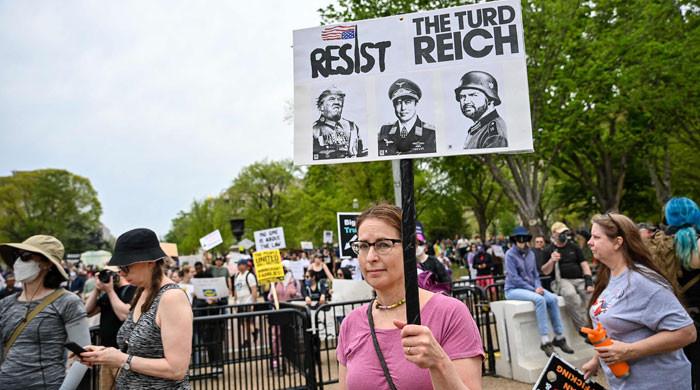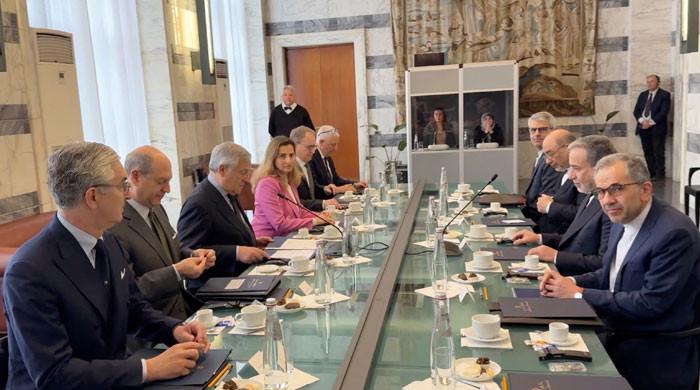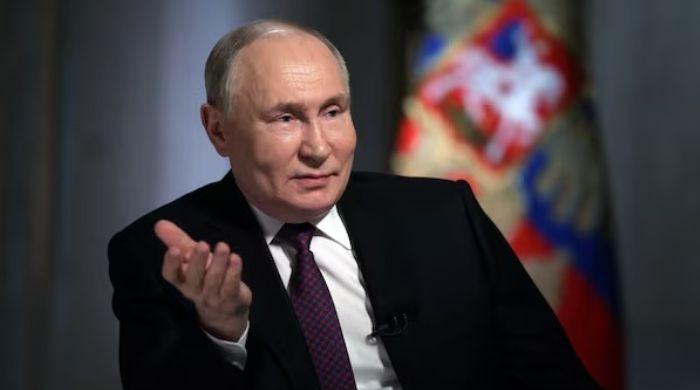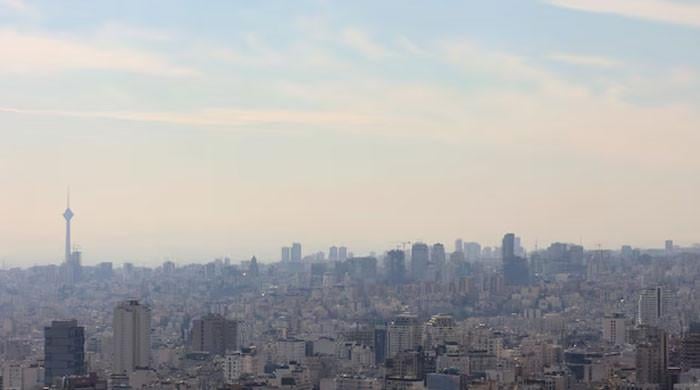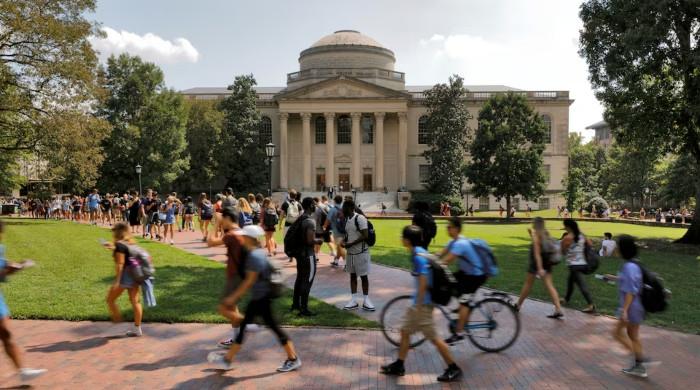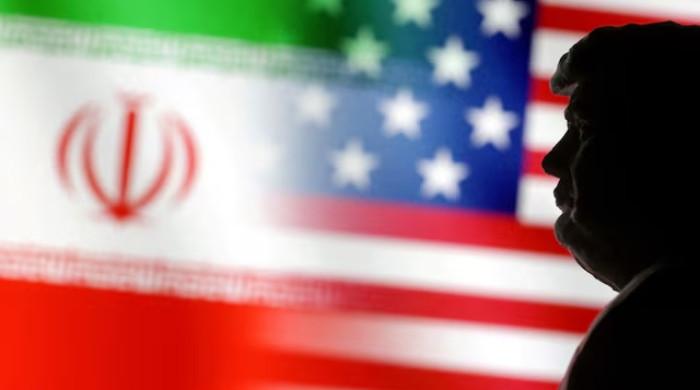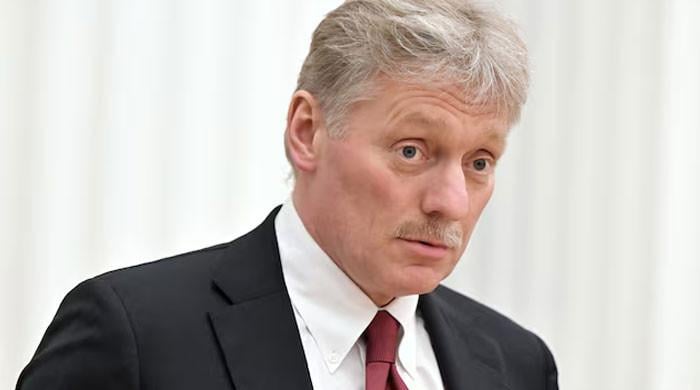OIC 'concerned' over Indian SC verdict upholding decision to abrogate IIOJK special status
OIC reiterates its call to reverse all illegal and unilateral measures taken by India since Aug 2019
December 13, 2023
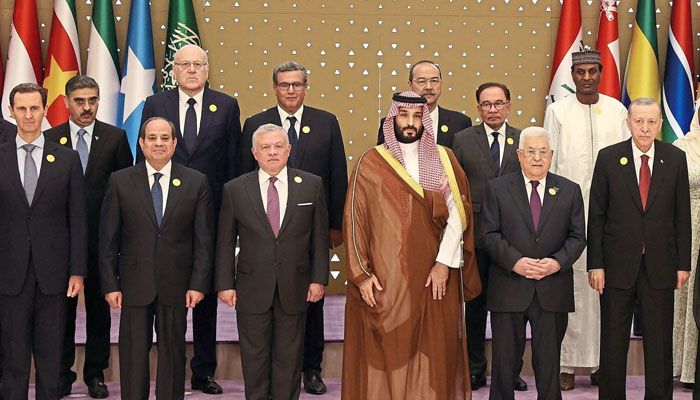
- OIC reiterates call to reverse all "illegal measures" taken since Aug 2019.
- General Secretariat reaffirms solidarity with people of IIOJK.
- India SC ruled IIOJK as an "integral part of India".
The Organisation of Islamic Cooperation (OIC) Wednesday expressed concern over the Indian Supreme Court's verdict upholding India's revocation of Article 370 that guaranteed special status to the Indian Illegally Occupied Jammu and Kashmir (IIOJK).
Earlier this week on December 11, the top Indian court ruled that Article 370 was a temporary provision — revoked by India on August 5, 2019 — and that the occupied territory was an integral part of the country.
The OIC General Secretariat, however, reiterated its call to reverse all illegal and unilateral measures taken by India ever since, seeking to change the internationally-recognised disputed status of the territory.
Taking to X, formerly Twitter, the OIC posted: "OIC General Secretariat expresses concern over the Indian Supreme Court’s Judgment Upholding the Unilateral Actions Taken by the Indian Government on 5th August 2019 that Stripped the Special Status of the Territory of Jammu and Kashmir"
The OIC shared the decisions and resolutions of the Islamic Summit and the OIC Council of Foreign Ministers on the issue of IIOJK.
The General Secretariat reaffirmed its solidarity with the people of IIOJK in their quest for the right of self-determination and reiterated its call on the international community to enhance its efforts to resolve the issue of Jammu and Kashmir by the relevant United Nations Security Council resolutions.
In 2019, the Modi government revoked Article 370, which ensured significant autonomy for IIOJK since 1947. The abrogation was enforced by a prolonged crackdown in the occupied territory, where a heavy contingent of the military was deployed, political leaders were incarcerated, a curfew was imposed and the internet was shut down for 18 months.
The Indian top court this week upheld the decision of Prime Minister Narendra Modi's government to strip Kashmir of autonomous status.
A five-judge bench led by Chief Justice of India (CJI) Dhananjaya Yeshwant Chandrachud ruled that the IIOJK had become an integral part of India "which is evident from Article 1 and 370 of the constitution".
The unanimous ruling came in response to more than a dozen petitions challenging the 2019 revocation and a subsequent decision of the Modi government to split the region into two federally administered territories.
The top court also upheld the Indian government's decision to abrogate the disputed region's semi-autonomous status, stating that the IIOJK "does not have internal sovereignty".
The SC also directed the country's election commission to conduct elections in the region by September 2024.
What’s Article 370 and why it matters for Kashmiris?
By repealing Article 370 of the constitution, people from the rest of India were given the right to acquire property in the disputed territory and settle there permanently.
The legislation was the basis of IIOJK's accession to the Indian Union at a time when former princely states could choose to join either India or Pakistan following their independence from British colonial rule in 1947.
The article, which was enacted in 1949, exempted IIOJK state from the Indian constitution.
It allows the valley to make its laws in all matters except defence, foreign affairs, finance and communications. The law established a separate constitution and a separate flag, denying property rights in the region to outsiders due to which the residents of IIOJK lived under different laws from India in matters such as citizenship and property ownership.




